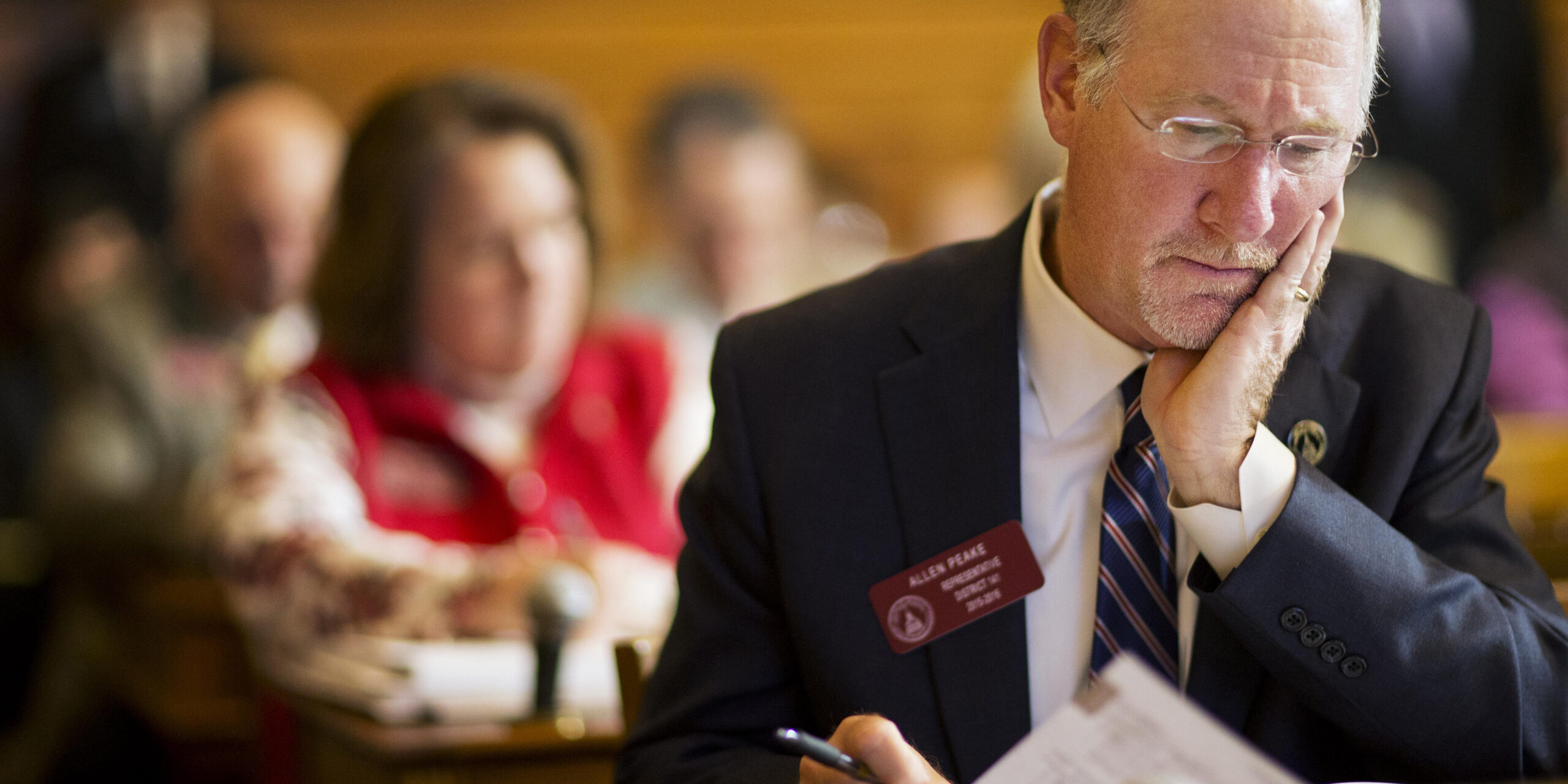Medical Marijuana Bill Stalls In Ga. Senate, Despite House Support

Georgia State Rep. Allen Peake, R-Macon, looks over Gov. Nathan Deal’s budget after he addressed lawmakers on his plan for the coming financial year at the Capitol Tuesday, Jan. 19, 2016, in Atlanta. (AP Photo/David Goldman)
David Goldman / Associated Press
A bill that would have given more Georgians access to medical marijuana failed to win final passage on the last day of the 2016 General Assembly session.
Despite overwhelmingly passing the House twice during the legislative session, the bill was never brought to a full Senate vote. The original bill, HB 722, stalled in the Senate Health and Human Services Committee. The language was then added on to SB 145, but that bill failed to make it to the Senate floor despite lawmakers tacking an extra 30 minutes on to the traditional midnight deadline.
“I am completely disappointed,” said bill sponsor Rep. Allen Peake (R-Macon). “Why the Senate would not help something that would help hundreds of citizens is beyond me.”
The bill would have expanded the list of conditions that qualify a person to legally possess an oil derived from cannabis plants from eight to 15. Among the new conditions were post traumatic stress disorder, HIV/AIDS and autism.
Peake originally set out to create a regulatory system to grow marijuana in state, but the cultivation language was stripped out earlier in the session by a House committee vetting the bill.
At points Thursday, the watered-down bill seemed poised for its first Senate vote. But in the final hours of the session, a version emerged that stripped it down even further. The Senate amended version removed all but three of the new qualifying conditions. It also would have reduced the legal THC limit signed into law last year from 5 percent to 3 percent.
“We were going to go backwards,” Peake said. “The amendment would have gutted the bill and would have killed the bill for all practical purposes.”
Critics had expressed concerns the bill was setting the state down a path that would ultimately lead to recreational marijuana use. At the heart of the debate was whether marijuana’s medical value could outweigh lawmakers and law enforcement’s fears that expanding access would create a slippery slope to widespread use.
Peake, who’s running unopposed in his district, says he plans to address the issue again next session.
9(MDAxODM0MDY4MDEyMTY4NDA3MzI3YjkzMw004))








